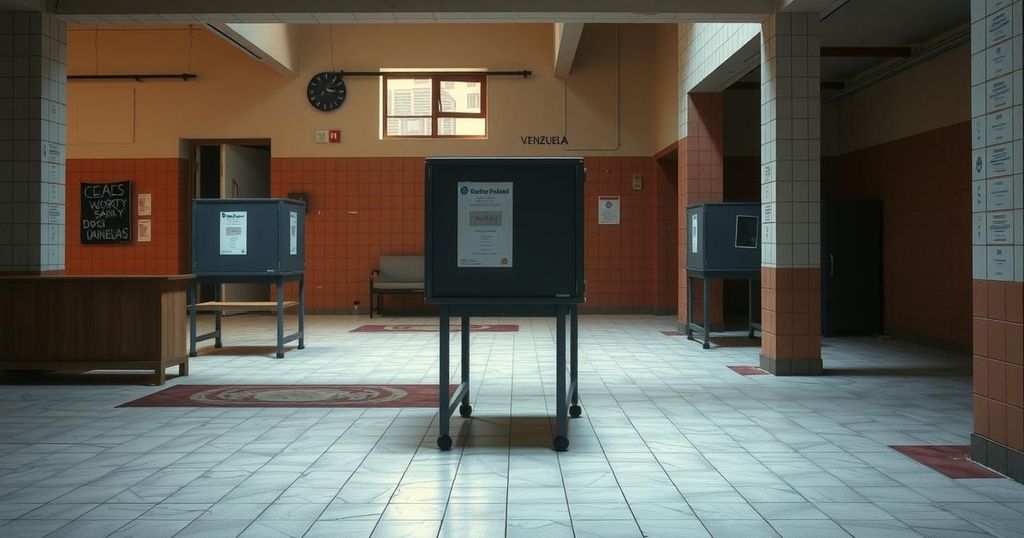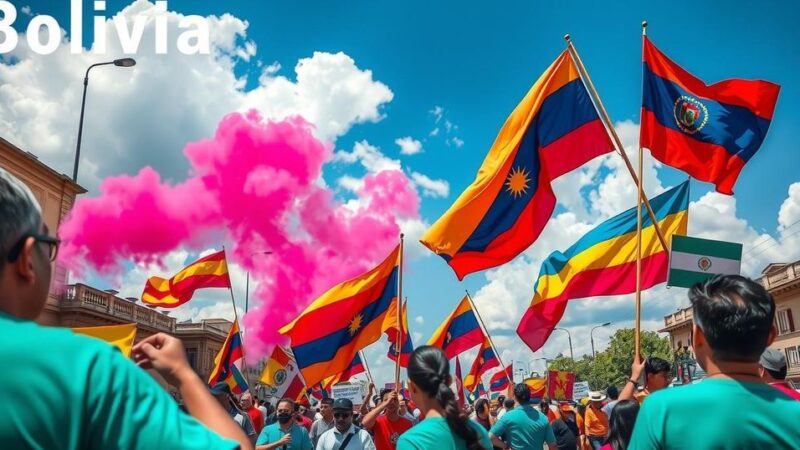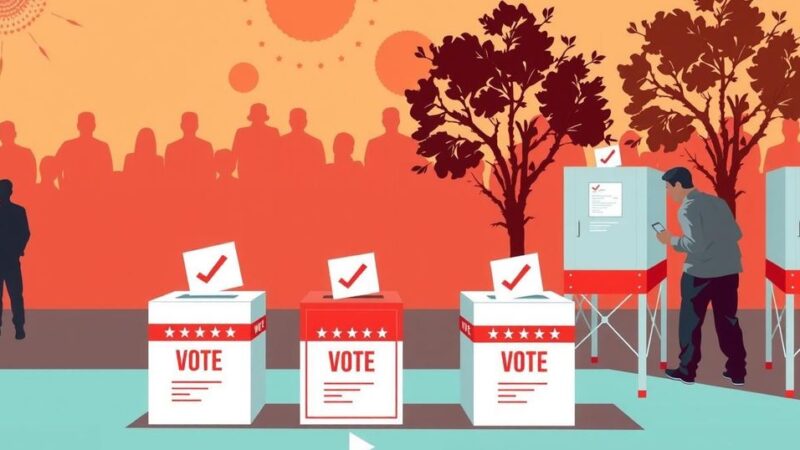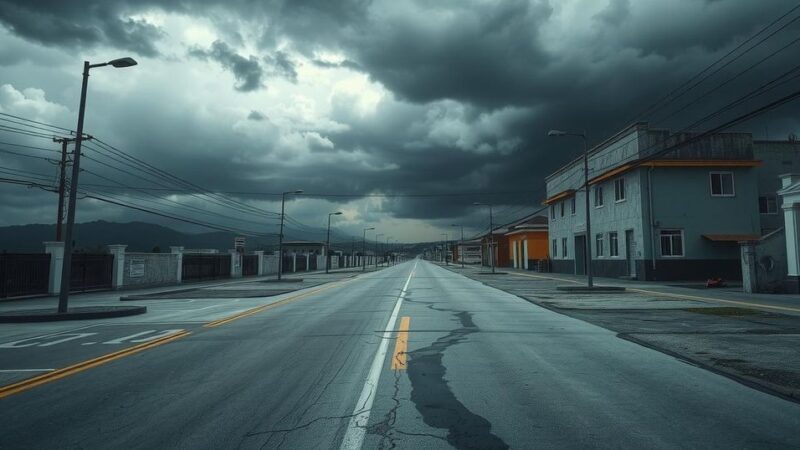Maria Corina Machado urges a boycott of Venezuela’s May 25 elections, claiming polling stations will be empty. The opposition is split on whether to participate in the elections. Machado contends that these elections are a facade designed to obscure the regime’s vulnerabilities, raising concerns about legitimacy and the impact of sanctions on Venezuelans.
Maria Corina Machado, the Venezuelan opposition leader, firmly stated on Thursday that polling stations will be “empty” during the upcoming legislative and gubernatorial elections scheduled for May 25. Machado has called for a boycott just ten months after President Nicolas Maduro’s controversial reelection, which many, including her party and numerous international actors, claim was rigged in favor of Maduro. She described the upcoming voting event as a “huge farce” intended to obscure the opposition’s victory from a year prior, which they contend was legitimate.
In a recent Zoom interview with AFP, Machado expressed strong confidence, asserting that May 25 would result in a significant setback for Maduro’s regime, which would find itself “absolutely alone” as a consequence of a massive voter boycott. The opposition remains internally divided over participation in the election, with Machado’s faction advocating for abstention, while a smaller group led by Henrique Capriles plans to participate.
The political landscape in Venezuela has been turbulent. Following Maduro’s self-proclaimed victories in the past elections, the incumbent leader faced a barrage of protests, leading to the engagement of security forces to suppress dissent. Despite his apparent backing from the military, Machado believes that there are fractures within the security forces and that the government is in a precarious position.
The opposition had previously boycotted a parliamentary election in 2020, which resulted in Maduro’s allies regaining control over the legislature. Rights organizations argue this absence permitted the government to enact increasingly severe laws against dissent. Similar claims were made regarding the authorities’ conduct during the 2018 presidential elections, which were widely discredited by global observers.
Machado heads the Democratic Unity Platform (PUD), which recently released its own results from polling stations. They assert that their candidate, Edmundo Gonzalez Urrutia, secured nearly two-thirds of the votes cast during the last election, reinforcing the opposition’s claims of electoral fraud. Although Machado has maintained a low profile since July, she made a notable appearance at a protest in Caracas earlier this month.
In contrast, Capriles argues that engaging in the electoral process is crucial to challenge Maduro’s stronghold. His group aims to field candidates for the upcoming elections, believing it is the only viable route to effect change. Yet, many within the opposition feel that international sanctions have adversely impacted regular Venezuelans and actually strengthened Maduro’s regime rather than weakening it.
Machado did not shy away from blaming Maduro for the sanctions, stressing that only he is responsible for the resulting hardships faced by Venezuelans. She has vowed to continue her fight against the regime, insisting she will remain steadfast “to the end.” The elections will undoubtedly shape the future political landscape in Venezuela, as the opposition grapples with strategy and effectiveness in countering an entrenched authoritarian rule.
In a climate of political unrest and skepticism, Maria Corina Machado, opposing Maduro’s regime, has issued a clarion call for a boycott of the May 25 elections. The opposition’s split reflects broader tensions while highlighting significant issues surrounding legitimacy and power. With Maduro’s controversial tactics and economic challenges, the stakes are high for both sides, making these upcoming elections pivotal.
Original Source: www.news-graphic.com






